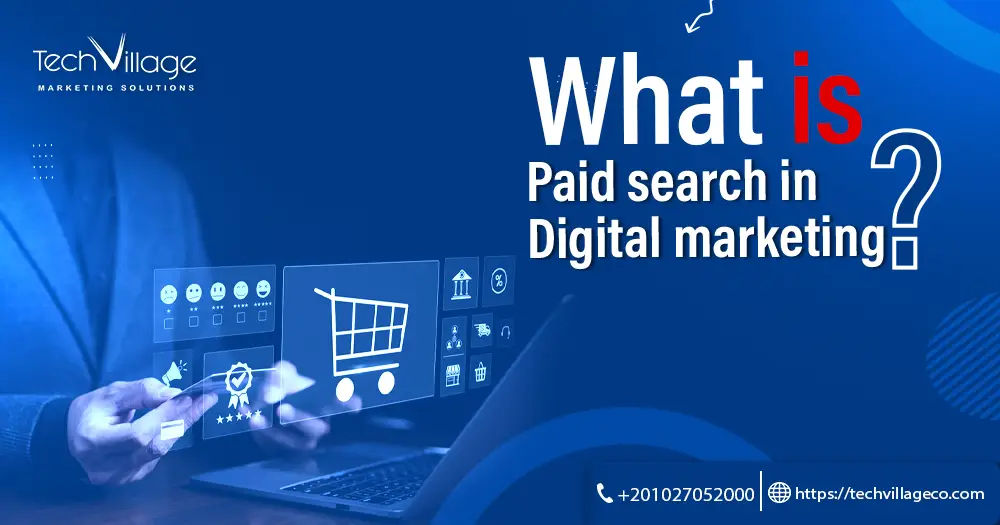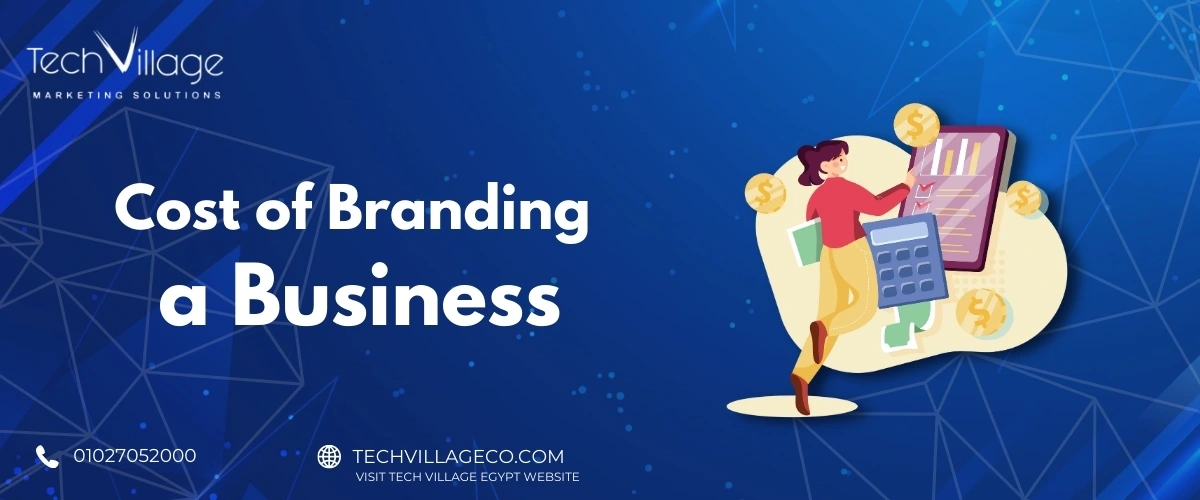what is paid search in digital marketing? As paid search, a cornerstone of digital marketing, is a targeted advertising strategy that allows businesses and advertisers to prominently showcase their offerings at the top of search engine results.
Through this approach, they pay for their advertisements to be displayed when users enter specific keywords related to their products, services, or industry. Operating on a pay-per-click (PPC) model, advertisers bid on chosen keywords, and each click on their ad incurs a cost.
This precise and results-driven method enables companies to reach a highly relevant audience actively seeking information or solutions, maximizing their visibility and potential for conversions. So we will learn about what is paid search in digital marketing.
Table of Contents
ToggleWhat is paid search in digital marketing
If you are searching about what is paid search in digital marketing? Here are the answers, paid search in digital marketing refers to a strategy where advertisers pay to display their ads prominently within search engine results.
These ads typically appear at the top or bottom of search engine results pages (SERPs) when users enter specific keywords related to the advertiser’s product or service.
Advertisers bid on keywords and pay for each click on their ad, a model known as pay-per-click (PPC) advertising. This approach allows businesses to reach a targeted audience actively searching for relevant information or products.
The Advantages of a Paid Search Campaign
Speaking of what is paid search in digital marketing? And it’s advantages as paid search campaigns offer several advantages in digital marketing, including:
- Immediate Visibility: Paid search ensures that your ads appear at the top of search results, providing instant visibility to potential customers.
- Targeted Reach: You can target specific demographics, locations, devices, and even the time of day to reach the right audience.
- Flexible Budgeting: You have control over your budget, allowing you to set a daily or campaign budget based on your financial capacity.
- Measurable ROI: Detailed analytics provide insights into your campaign’s performance, enabling you to measure the return on investment (ROI) accurately.
- Quick Results: Unlike organic search efforts, paid search campaigns can generate traffic and conversions rapidly, making it an efficient strategy for short-term goals.
- Adaptability and Optimization: You can constantly refine and optimize your campaigns based on real-time data, improving their efficiency and effectiveness.
- Brand Exposure: in addition to what is paid search in digital marketing? Paid search enhances brand visibility, even if users don’t click on your ad, as they see your brand at the top of the search results.
- Competitive Edge: It allows smaller businesses to compete with larger competitors by leveraging a well-structured and targeted paid search strategy.
- Ad Customization: You can tailor your ad copy, extensions, and landing pages to align with specific keywords and audience segments for better engagement.
- Enhanced Local Presence: For businesses with a physical location, paid search enables them to target local customers effectively.
Get to know: What Is Impression In Digital Marketing.
Applications and Strategies of Paid Search Marketing
In addition to what is paid search in digital marketing? Paid search marketing, often referred to as pay-per-click (PPC) advertising, can be applied through various platforms like Google Ads, Bing Ads, and other search engine advertising programs.
1- Keyword Research and Selection:
- Identify relevant keywords related to your business, products, or services that potential customers are likely to search for.
- Use keyword research tools to assess search volume, competition, and relevance.
2- Campaign Structuring and Ad Groups:
- Organize your campaigns into logical structures based on product categories, services, or geographic locations.
- Create ad groups with tightly related keywords to ensure targeted messaging in ads.
3- Compelling Ad Creation:
- Craft persuasive and relevant ad copy that includes the chosen keywords to entice clicks.
- Use ad extensions like site links, callouts, and location extensions to provide additional information and improve ad visibility.
Read also: What Is Google Trends In Digital Marketing.
4- Landing Page Optimization:
- Design and optimize landing pages that align with the ad’s messaging and encourage desired actions such as purchases or sign-ups.
- Ensure fast loading times, clear calls-to-action, and a seamless user experience.
5- Bid Management and Budgeting:
- Set competitive bids for keywords to achieve desired ad placements.
- Monitor and adjust bids to maximize ROI and control costs effectively.
7- Targeting and Segmentation:
- Utilize geographic targeting to focus on specific regions where your target audience is located.
- t device targeting to optimize for mobile or desktop users based on your audience’s behavior.
8- Remarketing and Retargeting:
- Implement remarketing campaigns to target users who have previously visited your website, encouraging them to return and complete a desired action.
9- Integration with SEO Strategies:
- Align paid search efforts with your SEO strategy to enhance overall visibility and complement organic search results.
Also: Digital Marketing Content Ideas For Instagram.
Understanding the rules of ad Ranking in paid search
According to tech village, Ad ranking in what is paid search in digital marketing refers to the position of an advertisement on the search engine results page (SERP) based on various factors. Here are the key rules that influence ad ranking:
1- Bid Amount:
- Advertisers place bids on specific keywords they want to target. The bid is the maximum amount they are willing to pay for a click on their ad when triggered by that keyword.
2- Quality Score:
- Quality Score is a metric assigned by the search engine (e.g., Google Ads) to evaluate the relevance and quality of an ad in relation to the keyword and the landing page.
- It considers factors such as expected click-through rate (CTR), ad relevance, and landing page experience.
- Higher Quality Scores positively impact ad ranking and can lead to lower costs per click (CPC).
3- Ad Extensions:
- Ad extensions, such as site link extensions, callout extensions, and location extensions, provide additional information and can improve the ad’s visibility and relevance.
- Including ad extensions can enhance the ad’s ranking and increase the chances of user interaction.
Here’s: The Power Of Digital Marketing.
4- Expected Click-Through Rate (CTR):
- The expected CTR is an estimate of how likely users are to click on an ad based on historical performance, ad relevance, and other factors.
- Ads with higher expected CTRs are generally favored and receive better ad ranking.
5- Ad Relevance:
- Ad relevance assesses how closely the ad matches the user’s search intent and the chosen keywords.
- Highly relevant ads to the search query typically receive a better ad ranking.
Conclusion
In conclusion, about what is paid search in digital marketing? This approach stands as a dynamic and pivotal facet of digital marketing, embodying the essence of precision, control, and results. By strategically investing in specific keywords and crafting compelling advertisements, businesses secure prime placement in search engine results, garnering immediate visibility to potential customers.
FAQ
The difference between PPC, SEM and SEO?
PPC is a paid advertising model where you pay for clicks, SEM combines both paid (PPC) and organic (SEO) strategies to enhance visibility, while SEO focuses on optimizing a website to improve its organic search ranking. Integrating these strategies effectively can lead to a comprehensive and successful digital marketing campaign.
What is paid search vs SEO?
Paid search (PPC) involves paying for immediate visibility through ads, while SEO focuses on optimizing a website to improve organic rankings and gain sustained traffic without direct payment per click. Both strategies are valuable and can complement each other in a comprehensive digital marketing approach.

 AR
AR





